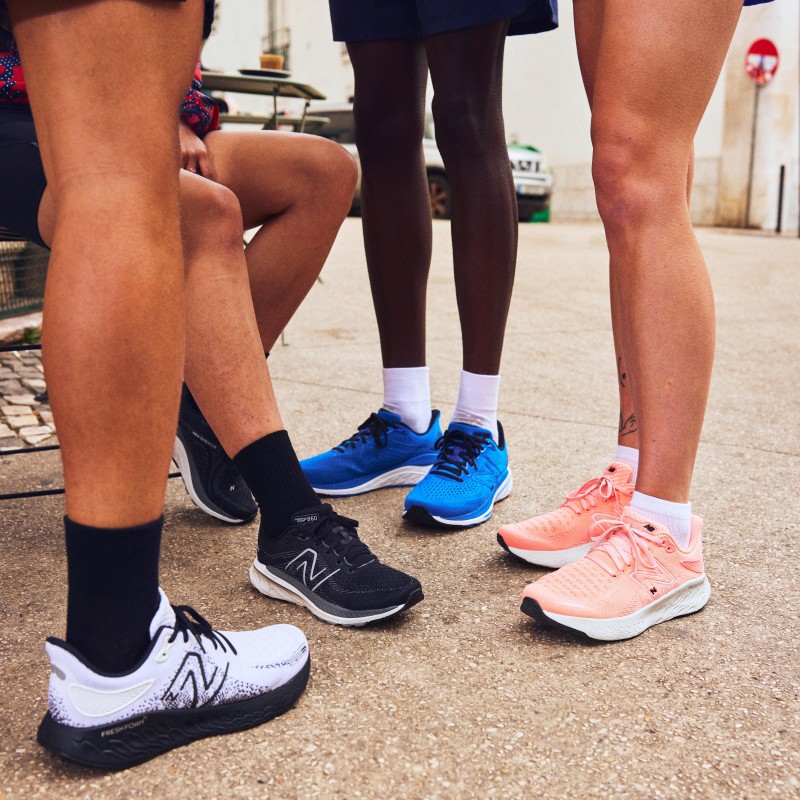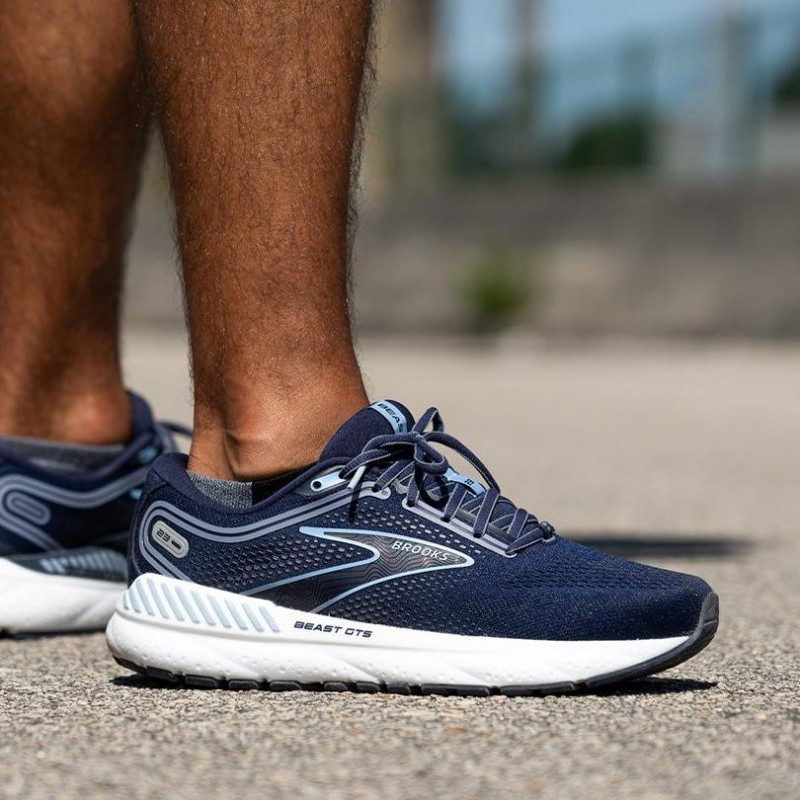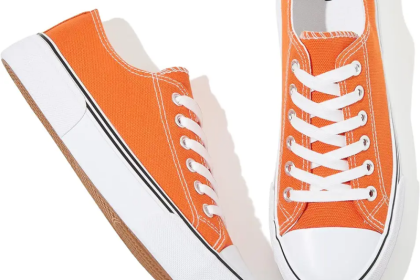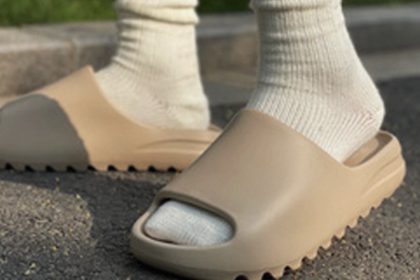In recent years, there has been a surge in awareness regarding environmental issues, prompting many industries to explore sustainable practices. The footwear industry is no exception, with a growing focus on producing eco-friendly running shoes made from recycled materials. For avid runners, the choice of shoes is crucial, but in today’s world, it has expanded to include eco-conscious decisions that can help reduce their ecological footprint. With traditional shoe manufacturing processes contributing to pollution and waste, eco-friendly alternatives can provide a viable solution. This article will delve deep into the features and benefits of eco-friendly running shoes made from recycled materials, the technology behind their production, prominent brands leading the change, as well as how to choose the right pair for your running needs. By embracing sustainable options, runners can enjoy their passion for fitness while contributing positively to the environment.

Understanding the Need for Eco-Friendly Running Shoes
Before we explore the specific features of eco-friendly running shoes made from recycled materials, it’s important to understand why the demand for sustainable footwear has increased.
Environmental Impact of Traditional Running Shoes
The conventional production of running shoes often involves materials that are both resource-intensive and harmful to the environment. Most traditional shoes are made of synthetic materials like plastics and rubber, which are derived from oil and other finite resources. The processes involved in manufacturing shoes contribute to greenhouse gas emissions, excessive waste, and pollution.
- Landfill Waste: With millions of running shoes disposed of each year, the footwear industry is responsible for significant landfill waste. Most conventional shoes take several decades to decompose.
- Resource Consumption: The extraction and processing of materials for traditional shoes require considerable energy and resources, adversely affecting the environment.
The Rise of Eco-Friendly Remedies
The pressing need to address these issues has led to a wave of advancements toward sustainability. Eco-friendly running shoes made from recycled materials have garnered attention as a solution. By utilizing repurposed materials, manufacturers reduce their reliance on virgin resources and develop products with a smaller carbon footprint.
Main factors contributing to this revolutionary shift include:
- Increased Awareness: As individuals become informed about environmental challenges, they tend to seek out sustainable solutions that align with their values.
- Innovative Materials: Advancements in technology have enabled brands to create high-performance footwear that incorporates recycled materials without compromising quality.
- Brand Accountability: Many footwear companies are now taking steps to enhance sustainability practices and make commitments to environmentally-friendly methods.
Exploring Features of Eco-Friendly Running Shoes
To understand what makes eco-friendly running shoes made from recycled materials stand out, it is essential to examine their unique features.
Use of Recycled Materials
Eco-friendly running shoes typically incorporate recycled materials such as plastic bottles, ocean waste, and discarded textiles. This innovative approach reduces waste and the need for new raw materials. Commonly used recycled materials include:
- Recycled PET (rPET): Derived from plastic bottles, this material is utilized for shoe uppers and linings, lowering plastic waste in landfills and oceans.
- Recycled Rubber: Many brands adopt recycled rubber for shoe soles, making the footwear durable while reducing the overall environmental impact.
- Recycled Foam: Some manufacturers are now integrating recycled foam for cushioning, which enhances comfort and shock absorption.
Biodegradable Components
Many eco-friendly shoes are designed with biodegradable components. Materials used in certain parts of the shoe—such as the upper, lining, and even adhesives—are engineered to break down over time when disposed of properly. This drastically reduces the time shoes spend in landfills.

Ethical Manufacturing Practices
Brands that produce eco-friendly running shoes often emphasize ethical manufacturing practices. This includes ensuring fair labor conditions, safe working environments, and the use of renewable energy sources during production. By supporting these brands, consumers collectively contribute to a more ethical production chain.
Innovative Design and Technology
Despite using recycled materials, eco-friendly running shoes do not compromise on style or performance. Thanks to technological advancements, these shoes often feature:
- Breathability: Advanced designs allow for airflow, keeping feet cool during runs.
- Comfort and Fit: Eco-friendly shoes incorporate comfortable cushioning and ergonomic designs, ensuring optimal fit for various foot shapes.
- Durability: Many recycled materials are engineered for durability, providing the performance expected from traditional running shoes.
Benefits of Choosing Eco-Friendly Running Shoes
Making the switch to eco-friendly running shoes made from recycled materials offers several benefits beyond sustainability.
Environmental Impact
One of the most compelling reasons to choose eco-friendly running shoes is their positive environmental impact. By opting for recycled materials, runners contribute to reducing plastic waste and conserving natural resources. This choice can help mitigate the adverse effects that traditional footwear production has inflicted on the planet.
Improved Personal Health
Research indicates that the materials used in traditional shoes can contribute to various health issues, including allergies and skin irritations. Eco-friendly shoes often utilize non-toxic materials, reducing exposure to harmful chemicals in footwear.
Enhanced Comfort and Performance
Many eco-friendly brands invest in technology that enhances the comfort and performance of their footwear. With thoughtfully designed cushioning and support systems, runners can enjoy a comfortable ride without sacrificing quality.
Investment in Sustainability
By purchasing eco-friendly running shoes made from recycled materials, consumers are actively investing in a sustainable future. Supporting brands that prioritize environmental responsibility encourages positive change in the industry, promoting additional sustainable practices.
Positive Brand Image
Choosing eco-friendly products also contributes to a positive brand image for consumers. As sustainability becomes increasingly valued, individuals often prefer brands that align with their eco-conscious values.
Popular Brands Leading the Way
With the rising demand for eco-friendly running shoes made from recycled materials, many brands have emerged, demonstrating their commitment to sustainability. Some leading names include:
Adidas
Adidas has been a pioneer in using recycled materials in its footwear. The Parley collection incorporates ocean plastic into its shoes, while the company has committed to increasing its use of recycled polyester in future products.
Nike
Nike’s Move to Zero initiative aims to eliminate waste and carbon emissions. The brand produces shoes like the Air Max 720, which features recycled materials at its core, showcasing a commitment to environmental sustainability.
Saucony
Saucony’s “Greener” initiative emphasizes sustainability throughout the supply chain. The company has released models like the Saucony Eco, which incorporate recycled materials and offer enhanced performance features.
Brooks
Brooks has made strides in sustainability through its BioMoGo DNA foam technology, which is eco-friendly while providing excellent cushioning. Additionally, the brand has released specific models that utilize recycled content.
Allbirds
Allbirds may be better known for their casual shoes, but they have committed to minimizing their footprint in everything they produce. Their running shoes utilize recycled materials like sugarcane and recycled plastic bottles.
Choosing the Right Eco-Friendly Running Shoes
Finding the right pair of eco-friendly running shoes made from recycled materials involves assessing your specific needs and preferences while considering the available options.
Assessing Your Running Style
Consider the type of running you participate in. Are you a casual jogger, a marathon enthusiast, or someone who enjoys trail running? Different types of running shoes cater to various activities and terrains.
Shoe Fit and Comfort
Trying different shoe brands and models is crucial in finding the right fit. Ensure that the shoes provide adequate support and breathability, allowing for comfortable long-distance running.
Material Considerations
Review the materials used in the shoes. Check for certifications that indicate eco-friendliness, such as recycled content percentage. This ensures that you are indeed making a sustainable choice without compromising quality.
Long-Term Performance
Research the longevity and performance reviews of specific models. Reading customer feedback can help assess how well the shoes hold up over time, particularly in relation to their eco-friendly claims.
Price Range
While sustainability is essential, consider your budget as well. Eco-friendly running shoes can vary significantly in price. Aim for a balance between quality and affordability, ensuring that you get value for your investment.
Maintenance Tips for Eco-Friendly Running Shoes
Proper care can enhance the lifespan and performance of your eco-friendly running shoes made from recycled materials.
Cleaning
Keep your shoes clean to maintain their appearance and functionality. Brush off dirt and mud after each run. For deeper cleaning, use a mild soap and warm water. Avoid harsh chemicals, as they may damage eco-friendly materials.
Drying Properly
After exposure to water or sweat, allow your shoes to dry naturally at room temperature. Avoid direct sunlight and heat sources, which can warp materials and cause deterioration.
Storage
Store your shoes in a cool, dry place away from direct sun exposure. Consider using shoe trees or stuffing them with newspaper to help maintain their shape when not in use.
Regular Inspections
Check your shoes for signs of wear and tear regularly. Look for any fraying or deteriorating materials, and address any issues before they escalate.
Rotate Shoes
If you are an avid runner, consider rotating between two pairs of eco-friendly shoes to allow sufficient time for each pair to recover from use, giving them a longer lifespan.
Making a Sustainable Change in Your Running Gear
Transitioning to eco-friendly running shoes made from recycled materials is more than just a purchase; it’s part of a broader commitment to sustainability in your lifestyle.
Inspiring Others
By choosing sustainable options, you can inspire your friends, family, and fellow runners to consider their impact. Sharing your experiences with eco-friendly running shoes can encourage meaningful discussions about sustainability in sports.
Educating Yourself
Continuously educate yourself about sustainability in the athletic industry. Stay informed about new brands, materials, and practices to make proactive decisions that align with your values.
Supporting Ethical Brands
Support brands that prioritize environmental responsibility and ethical manufacturing. Your purchasing power can influence companies to innovate further in sustainable practices.
Participating in Community Events
Consider participating in community running events focused on sustainability. Whether it’s local races or clean-up runs, being part of these initiatives enhances awareness while promoting a healthy lifestyle.

Conclusion
In conclusion, embracing eco-friendly running shoes made from recycled materials can significantly impact both your running experience and the environment. The ongoing need for sustainable practices in all areas of life highlights the importance of mindful consumer choices, particularly in the footwear industry. As athletes increasingly look for ways to minimize their ecological footprint, eco-friendly running shoes provide a viable solution that does not compromise performance or comfort.
With advancements in technology, materials, and ethical manufacturing, there are numerous options available for every runner seeking a sustainable choice. By understanding the benefits, features, and brands associated with eco-friendly footwear, you can make informed decisions that align with your values. Ultimately, shifting towards greener choices in running gear empowers you to contribute positively to the environment while enjoying the activity you love.
As you lace up your new eco-friendly running shoes, remember that each step you take contributes to a more sustainable future. Encouraging your friends and fellow runners to consider the impact of their choices further amplifies the positive change we can create collectively. Together, let’s embrace the journey towards a cleaner, greener running community.




